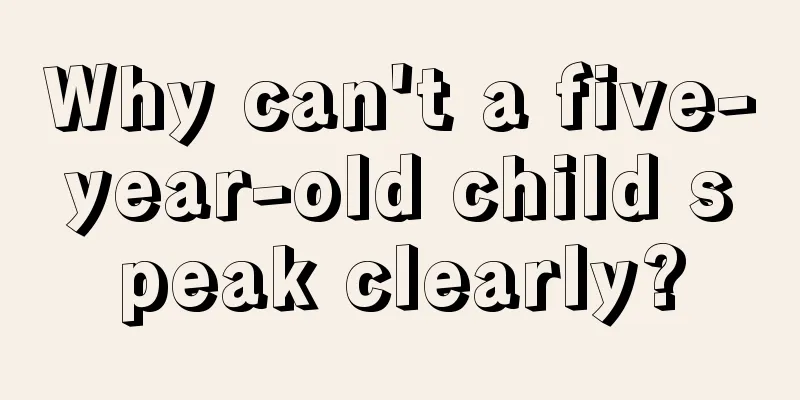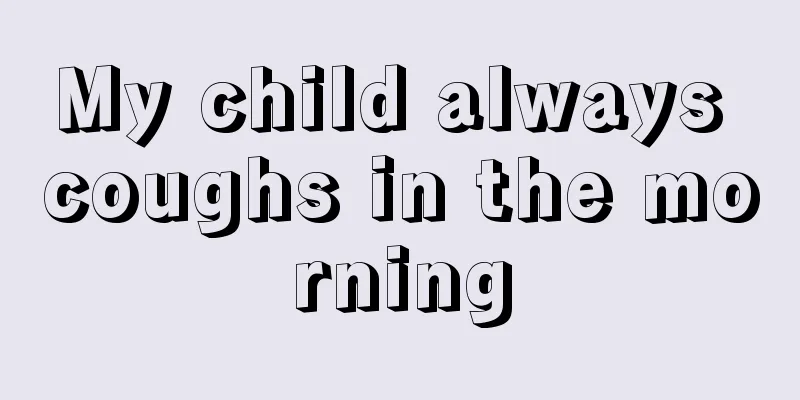How to judge baby's sleepiness

|
Drowsiness is a common symptom, especially in infants. However, babies generally sleep for a long time, so it is not easy to judge whether the baby is sleepy. This requires parents to first understand the baby’s normal sleep time. Baby's sleepiness is harmful to a certain extent and needs to be treated promptly according to the cause. Below, we will introduce to you the methods to judge your baby’s sleepiness, the causes and dangers. 1. How to judge whether the baby is sleepyGenerally, newborn babies sleep for a long time. You usually see them sleeping. However, if you find that the baby's sleep time exceeds a certain standard, he may be sleepy. Let's first look at the standards for baby sleep. Under normal circumstances, a one-month-old baby sleeps between 20 and 22 hours a day; a two-month-old baby sleeps about 18 hours a day; a three-month-old baby sleeps about 16 hours a day; and babies over six months old sleep between 12 and 14 hours a day. As the baby grows, the sleep time will gradually shorten. If mothers find that their babies sleep longer than this standard, they are likely to be sleepy.
1. Lethargy caused by encephalitis and meningitis During the spring and autumn seasons when viral encephalitis is prevalent, if your baby has a high fever followed by drowsiness and vomiting, you should be alert and take your baby to the hospital for a cerebrospinal fluid test. In severe cases, drowsiness may cause lesions, and the patient may gradually fall into a coma, followed by symptoms of the nervous system such as convulsions and paralysis. 2. Drowsiness caused by side effects of medication Some medicines contain sedative ingredients, such as some antidiarrhea mixtures, medicines for colds and fevers, cough suppressants, anti-allergic medicines, and anti-vertigo medicines, etc. Babies will become drowsy after taking them. If the doctor explains that the medicine may cause drowsiness, then don't worry, the symptoms will be relieved when the medicine is stopped.
Drowsiness is an early symptom of poisoning, which is usually caused by taking the wrong medicine or inhaling toxic gases. The most common cause is overdose of medicines containing sedatives, such as adult antihypertensive drugs, sleeping pills, etc. Some babies do not know how to eat them as candy, and some parents take the wrong medicines. Parents should place adult medicines out of the reach of babies and keep them separate from children's medicines. Others inhale toxic gases, such as coal gas, spray pesticides, etc. Mild cases may cause drowsiness, while severe cases may be life-threatening. 3. The harm of baby's sleepiness 1. Long-term sleepiness can easily affect the baby's digestive system, causing symptoms such as decreased appetite, nausea, vomiting, and depression, which can easily lead to gastrointestinal dysfunction; 2. Long-term sleepiness will affect the child's normal sleep regularity, which will affect the baby's immune system, increase the baby's chance of illness, and often cause respiratory diseases, digestive tract diseases, etc. |
<<: How to diagnose a concussion in a baby
>>: What to do if your child doesn't like to sleep
Recommend
Causes of baby's skull protrusion
Babies grow up slowly from birth, and problems of...
How to care for babies with congenital heart disease
If a baby has congenital heart disease, the baby&...
What foods are most beneficial to the brain for primary school students?
Primary school students are in a critical period ...
Child with runny nose and cough
It is actually very common for children to have a...
Examination methods for mild pneumonia in children
In fact, many times, babies should pay attention ...
What is the reason for the child's yellow urine?
The thing that mothers worry about most when taki...
What should I do if my baby's poop is green?
It is well known that families love and care for ...
Six or seven month old baby has diarrhea
Every change in the baby after birth is watched b...
What to do if children often have leg cramps
Some children are born to be playful, while other...
What is the normal heart rate for a newborn baby?
The heart rate of a newborn is different from tha...
White spots on the child's skin
White spots on a child's skin may be symptoms...
What to do if your child stutters
Children's stuttering brings great trouble to...
7 year old child wets the bed
For newborn babies, their body organs and brain s...
How tall is a one year old baby?
Babies over one year old are in the golden stage ...
Newborn abdominal massage preparation
Care for newborns must be comprehensive. Many mot...









